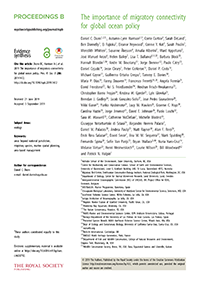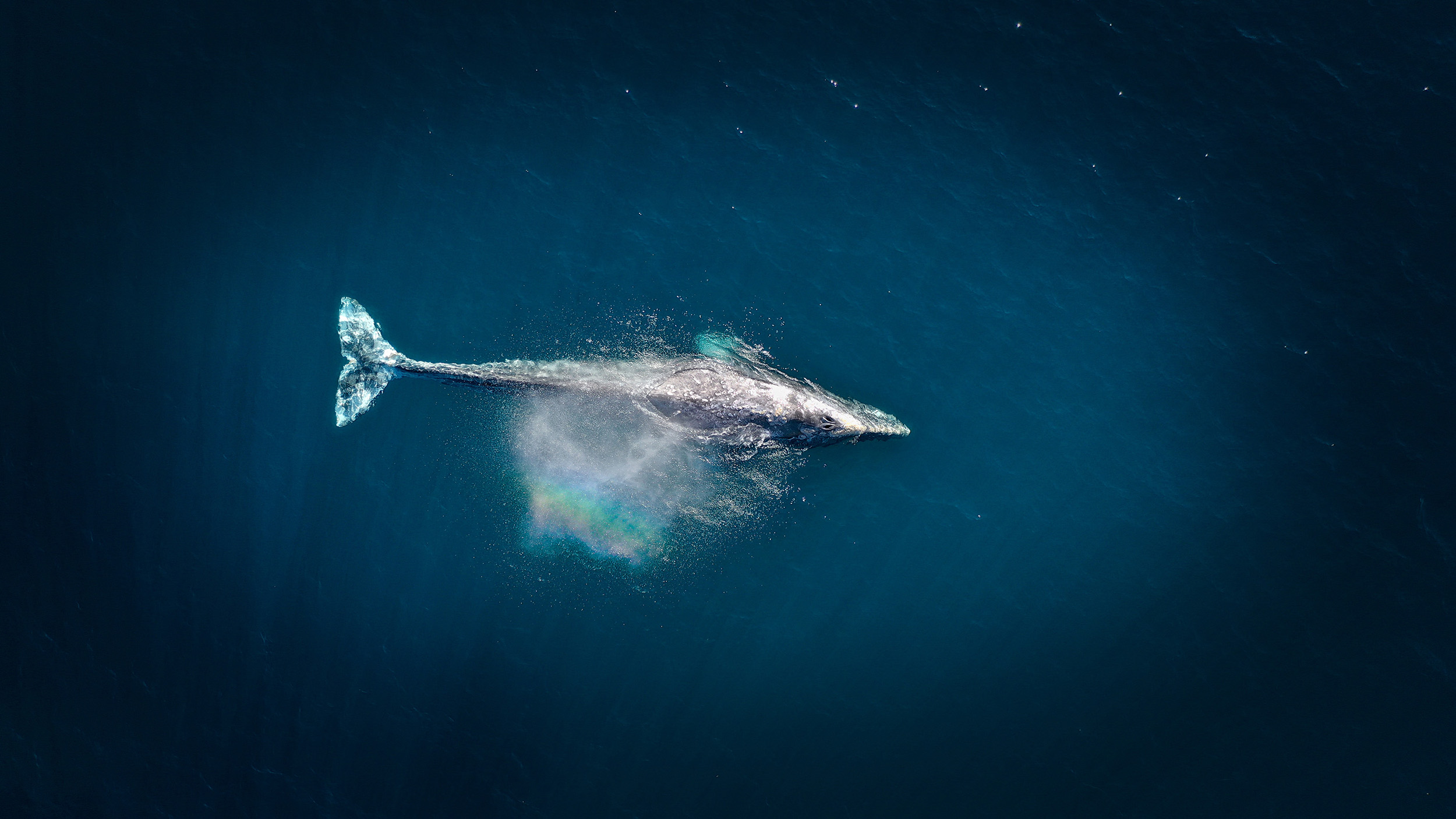GOBI’s work on ocean migration and connectivity is highlighted in a new peer-reviewed paper that details the importance of freely available and easily accessible information on migration patterns for the conservation of endangered species in the ocean. The work provides a community-led solution: a first-of-its-kind online mapping and knowledge platform.
Led by GOBI partners Dr Daniel Dunn of the University of Queensland & Duke University, and Dr Autumn-Lynn Harrison of the Smithsonian Migratory Bird Center, the team of 71 researchers released the Migratory Connectivity in the Ocean (MiCO) system.

“This new tool provides actionable insights on the migration patterns and movements of marine wildlife, acting like a force multiplier for researcher’s data to inform conservation efforts and sustainable use of oceans worldwide,” Dr Dunn said.
“Migratory species, including sea turtles, marine mammals, seabirds and fish, travel thousands of kilometres across the world each year, often through ocean habitats which are at severe risk from human threats like overfishing, pollution, marine debris and climate change. The cumulative impact of these threats can threaten populations of marine species and these impacts are often spread across a number of jurisdictions globally.”
MiCO links the large amount of data on migratory species continually being gathered by researchers with environmental managers or policy-makers, who suffer from a lack of capacity, time and budget to analyse those data.
“We have developed MiCO to analyse and interpret these global data, providing a single, unified access to treasure troves of knowledge for direct use in policy and management,” said Dr Harrison. “Some migratory species spend 75% of their time in international waters, and knowledge from MiCO has already played a vital role in the evolution of international marine policies.”
“Migratory species connect economies and ecosystems in a way that requires a shared approach to governance,” Dr Dunn said. “By illuminating these connections, MiCO is informing industry actions, regional governance and the negotiations of a new UN treaty for the high seas.”
Welcoming this important study, Acting Executive Secretary of the Convention on Migratory Species, Amy Fraenkel, said: “Understanding the importance of migratory connectivity for conservation efforts is at the core of the Convention on Migratory Species – the only global legal instrument dedicated to the conservation of migratory animals.”

Read the full paper: Dunn DC, Harrison A-L et al. 2019 The importance of migratory connectivity for global ocean policy. Proc. R. Soc. B 286: 20191472. DOI: 10.1098/rspb.2019.1472
MiCO is a growing consortium of more than 50 international organisations including data repositories, national observing systems, taxa conservation groups, museums, environmental non-governmental organizations, universities, intergovernmental organizations and UN bodies. Still in the early release phase, the system capabilities are expected to expand over the next two years.
MiCO is part of GOBI’s portfolio of work funded under a grant from the International Climate Initiative (IKI). The German Federal Ministry for the Environment, Nature Conservation and Nuclear Safety (BMU) supports this initiative on the basis of a decision adopted by the German Bundestag.


